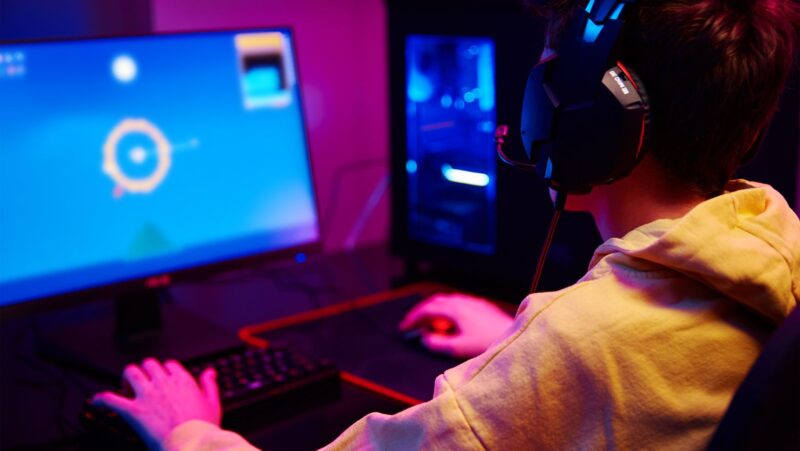
The latest research by Aithor and TutorAI has brought to light fascinating insights into the study habits of students in the US and the UK. According to the study, American students spend 41% less time studying than their British counterparts, yet they seem to enjoy a significantly better work-life balance. This intriguing contrast raises questions about the effectiveness of educational systems and the cultural factors influencing student lifestyles in these two nations.
British students, as the research highlights, dedicate a substantial amount of their daily routine to academic pursuits. This could be attributed to a more traditional approach to education in the UK, where rigorous schedules and high academic expectations are common. The pressure to perform well in standardized tests and university entrance exams often leads to extended hours of study. However, this intensive focus on academics might come at a cost. The report suggests that British students may struggle more with maintaining a balanced lifestyle, as their schedules leave little room for relaxation or extracurricular activities.
In contrast, American students appear to prioritize a more holistic approach to their education. While they invest fewer hours in studying, they often engage in activities that contribute to personal growth and development outside the classroom. This might include sports, arts, volunteering, or part-time work. Such experiences not only enhance their resumes but also help them develop essential life skills such as teamwork, time management, and adaptability. The ability to strike this balance could be one reason why US students report higher levels of satisfaction with their overall educational experience.

One of the critical factors contributing to these differences is the role of technology and innovative teaching methods in the US. American schools and universities are known for their adoption of advanced educational tools, such as interactive e-learning platforms, AI-driven tutoring systems, and collaborative online tools. These technologies enable students to learn more efficiently, reducing the need for prolonged study sessions. The integration of technology in education also supports personalized learning, allowing students to focus on areas where they need the most improvement while progressing at their own pace.
On the other hand, the UK education system has been slower in adopting such technologies. While British institutions are undoubtedly making strides in this area, traditional teaching methods still dominate. This reliance on conventional approaches may require students to spend more hours on rote learning and repetitive tasks, leaving less time for other aspects of life.
Another notable difference lies in cultural attitudes towards education. In the UK, academic achievement is often viewed as a reflection of one’s discipline and hard work. This cultural emphasis on academic rigor might explain why British students are willing to dedicate more time to their studies. Meanwhile, the US culture places a stronger emphasis on individuality and personal growth. Students are encouraged to explore their interests and passions alongside their academic responsibilities, fostering a more well-rounded development.
The findings of the Aithor and TutorAI study also shed light on the potential mental health implications of these differing approaches. British students’ long hours of study may lead to higher levels of stress and burnout, which can negatively impact their academic performance and overall well-being. In contrast, the balanced approach adopted by American students might contribute to better mental health outcomes. By allocating time for leisure and social activities, US students can alleviate stress and maintain a more positive outlook on their education.
These insights have significant implications for educators and policymakers in both countries. For the UK, there is a clear need to explore ways to make education more efficient and balanced. This could involve greater integration of technology, a shift towards more interactive and student-centered teaching methods, and a reevaluation of the cultural norms that prioritize academic achievement above all else. Encouraging students to participate in extracurricular activities and promoting the importance of mental health could also help create a more balanced educational environment.
In the US, while the current approach seems to work well for many students, there is always room for improvement. Ensuring that students do not sacrifice academic rigor for the sake of balance is essential. Schools and universities could focus on maintaining high academic standards while continuing to support a well-rounded lifestyle. Expanding access to cutting-edge educational technologies and resources can further enhance the learning experience, enabling students to achieve even greater success.
The study also raises broader questions about the purpose of education in the modern world. Should the primary goal of education be to instill discipline and knowledge through intensive study, or should it aim to prepare students for a balanced and fulfilling life? The contrasting experiences of US and UK students suggest that there is no one-size-fits-all answer. However, the insights from this research highlight the importance of considering cultural and systemic factors when evaluating educational outcomes.
Ultimately, the findings from Aithor and TutorAI’s research provide a valuable opportunity for both countries to learn from each other. The UK could benefit from adopting some of the US’s innovative and flexible approaches to education, while the US might draw inspiration from the UK’s emphasis on academic discipline. By embracing the strengths of each system, educators and policymakers can create a more effective and balanced educational framework that meets the needs of students in an ever-changing world.
For those interested in exploring this research further, the full study is available on Aithor’s website: US Students Study 41% Less Than Brits and Enjoy Better Work-Life Balance. The findings provide a thought-provoking look at the diverse ways education is approached and experienced across different cultures. By understanding these differences, we can work towards creating a global educational system that truly empowers students to thrive both academically and personally.













